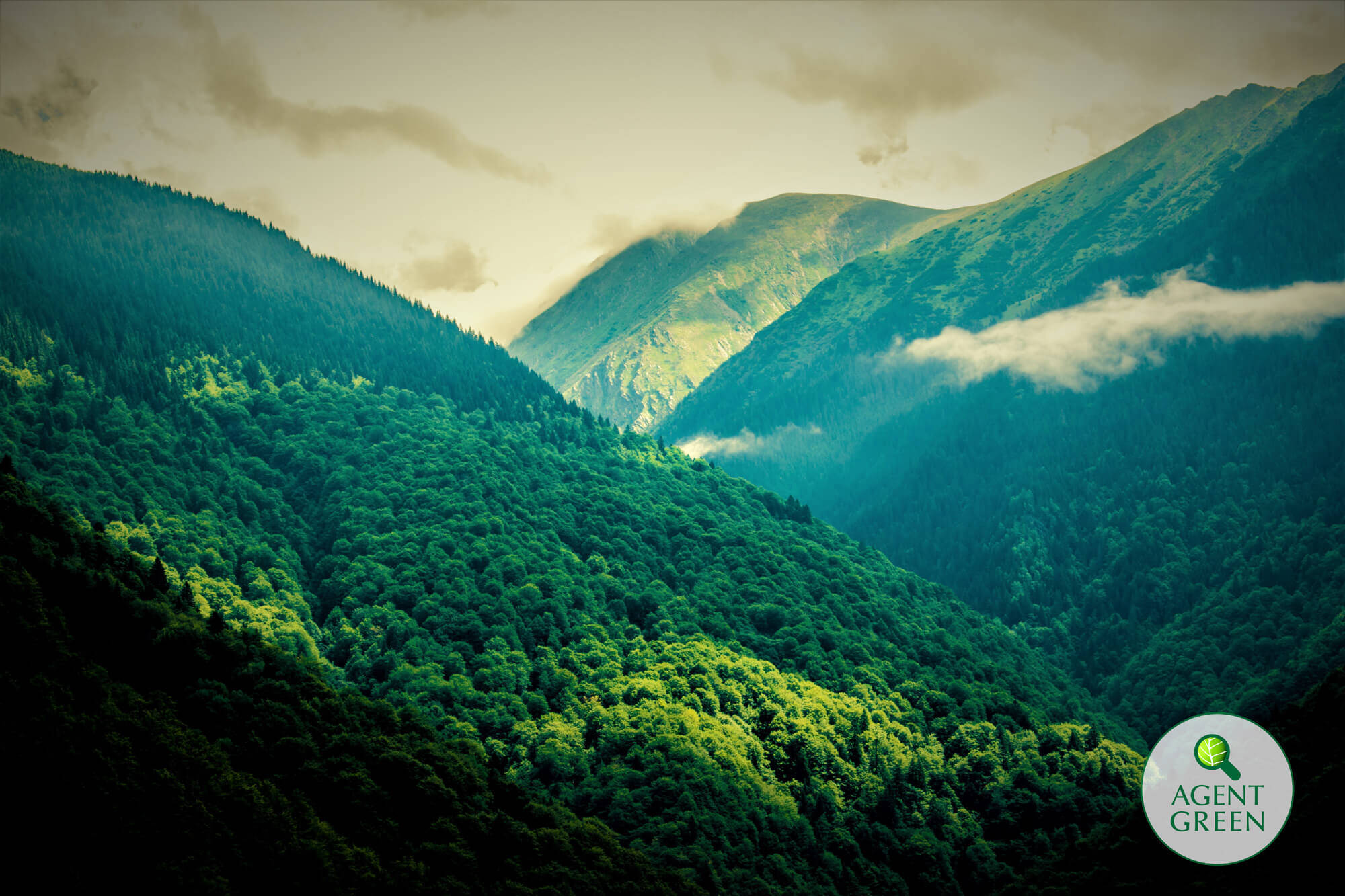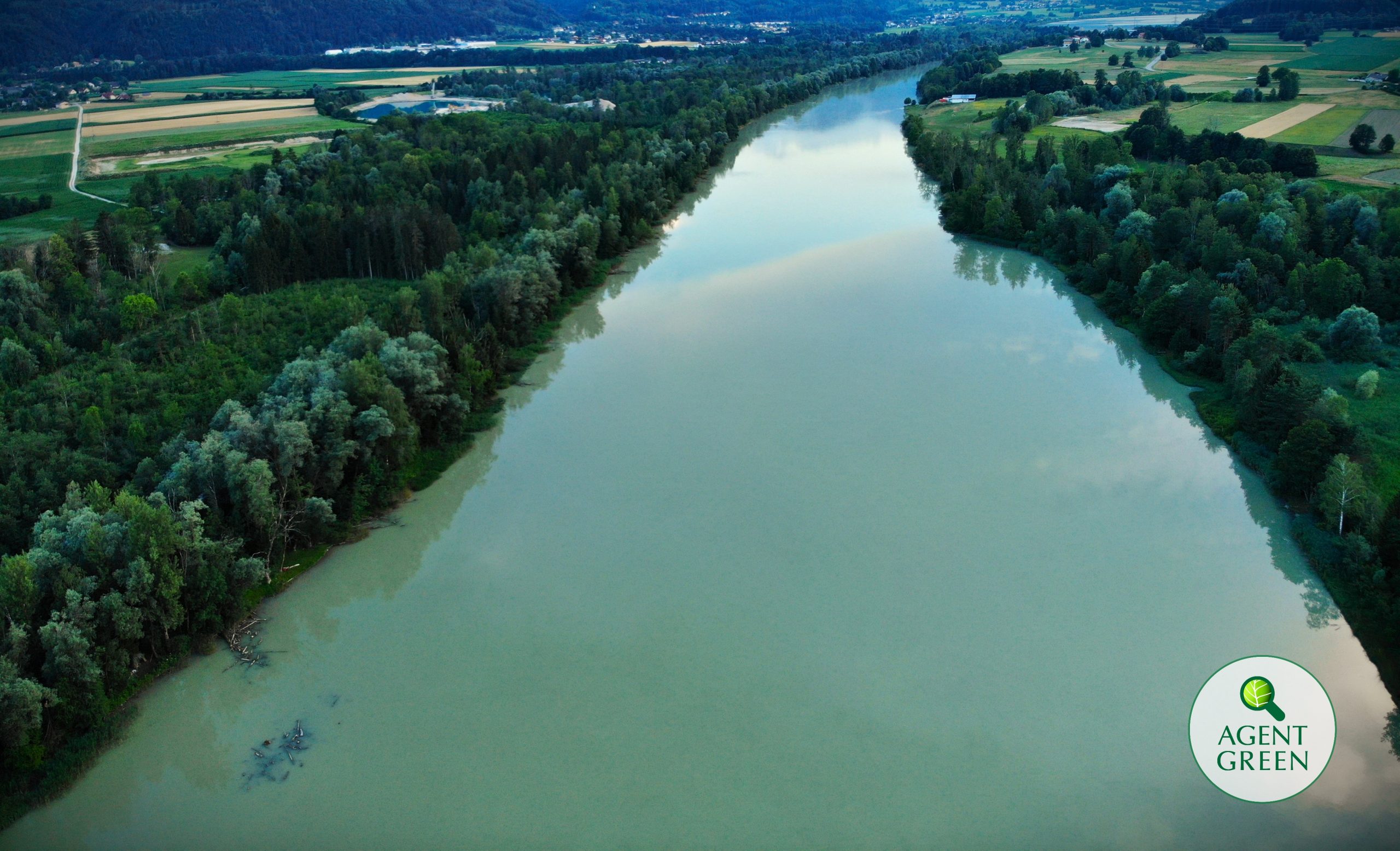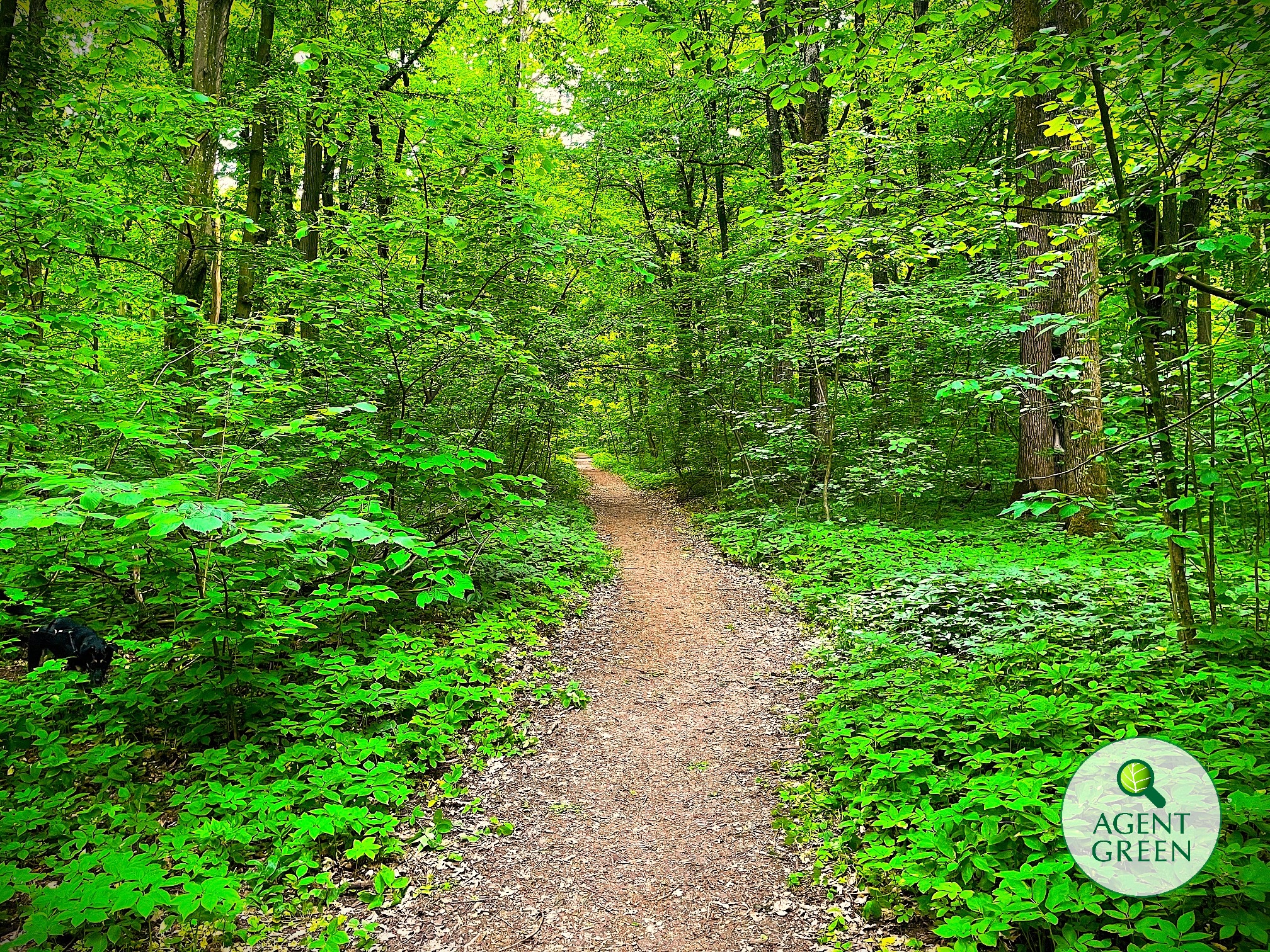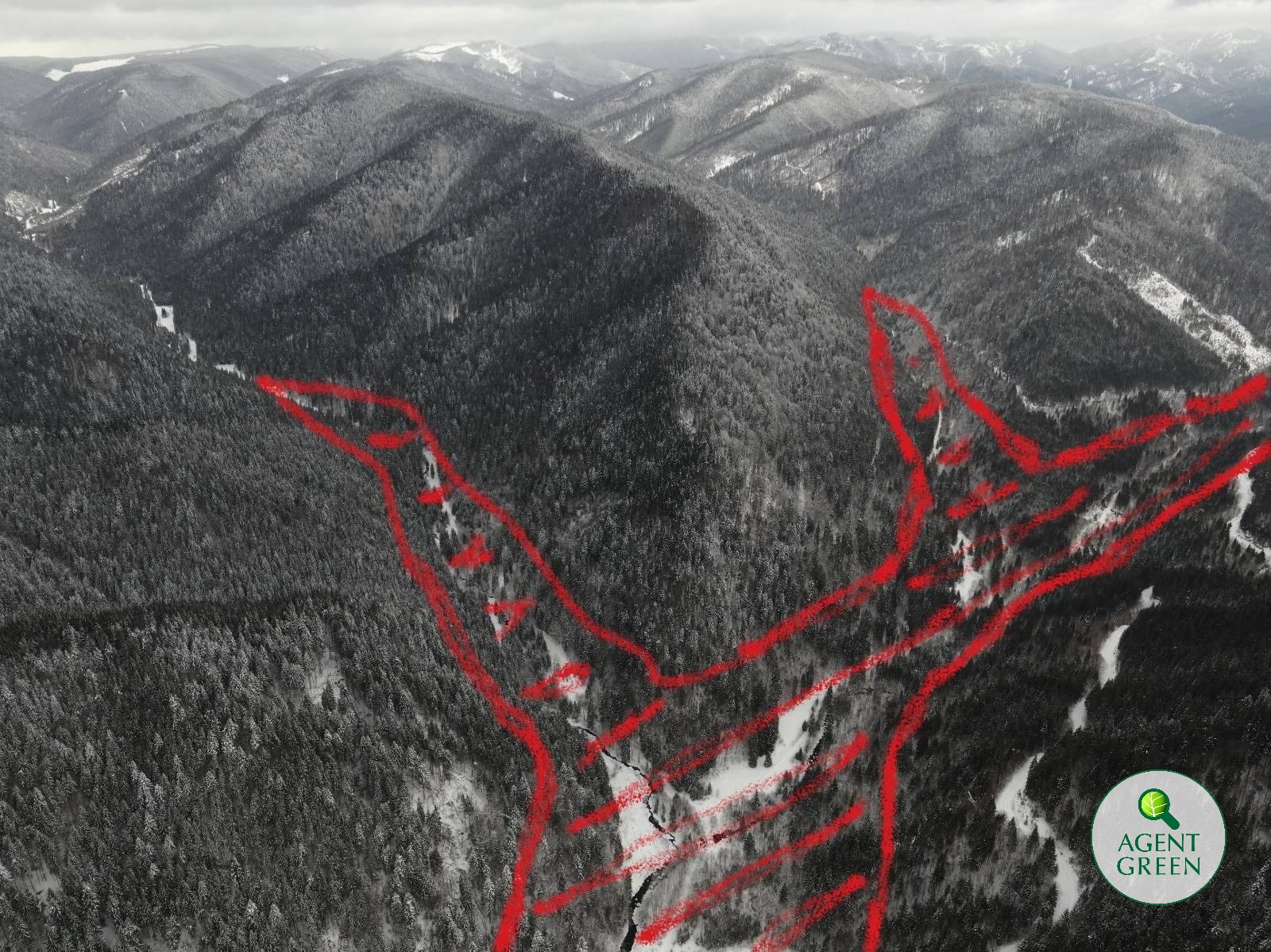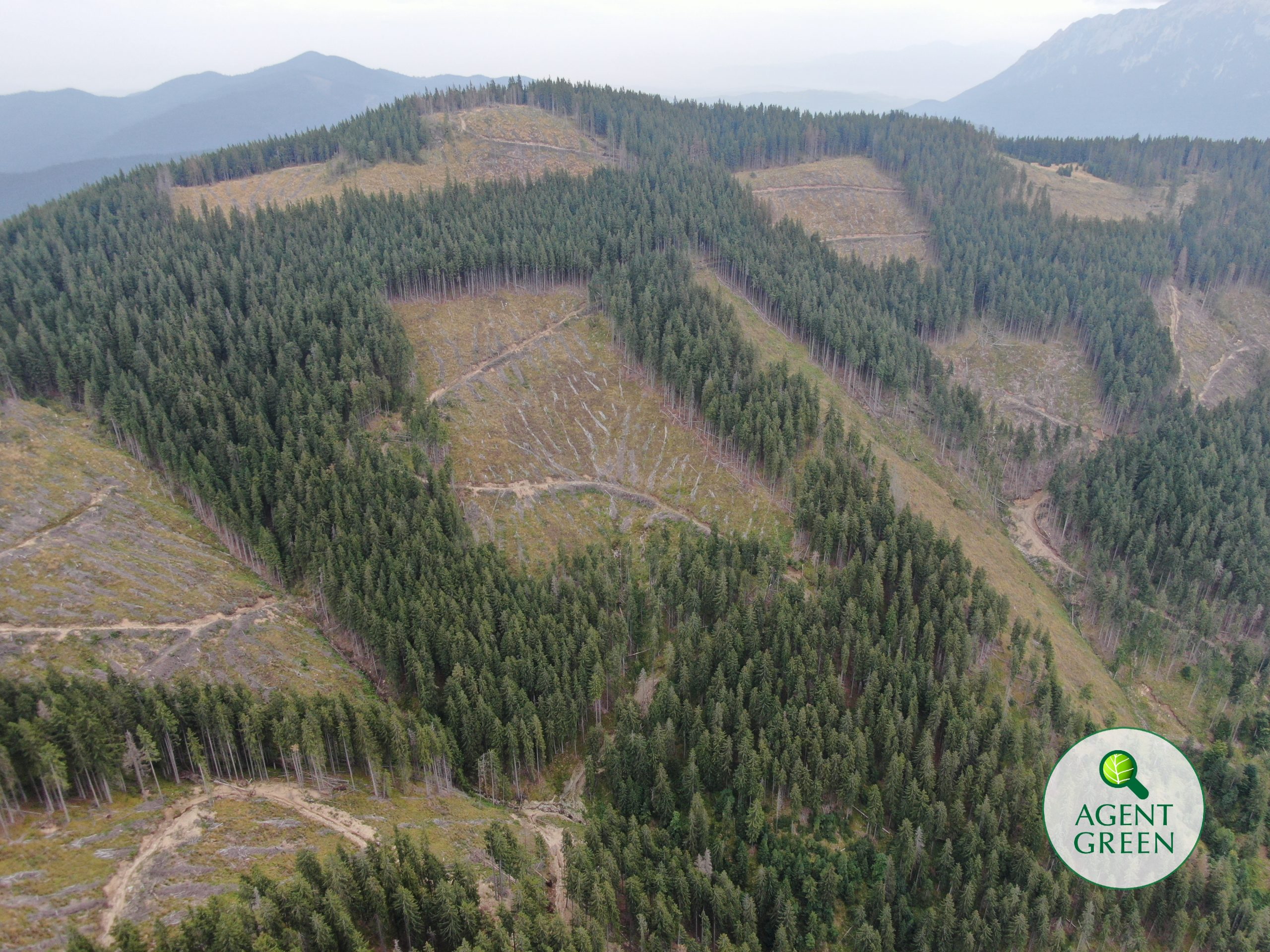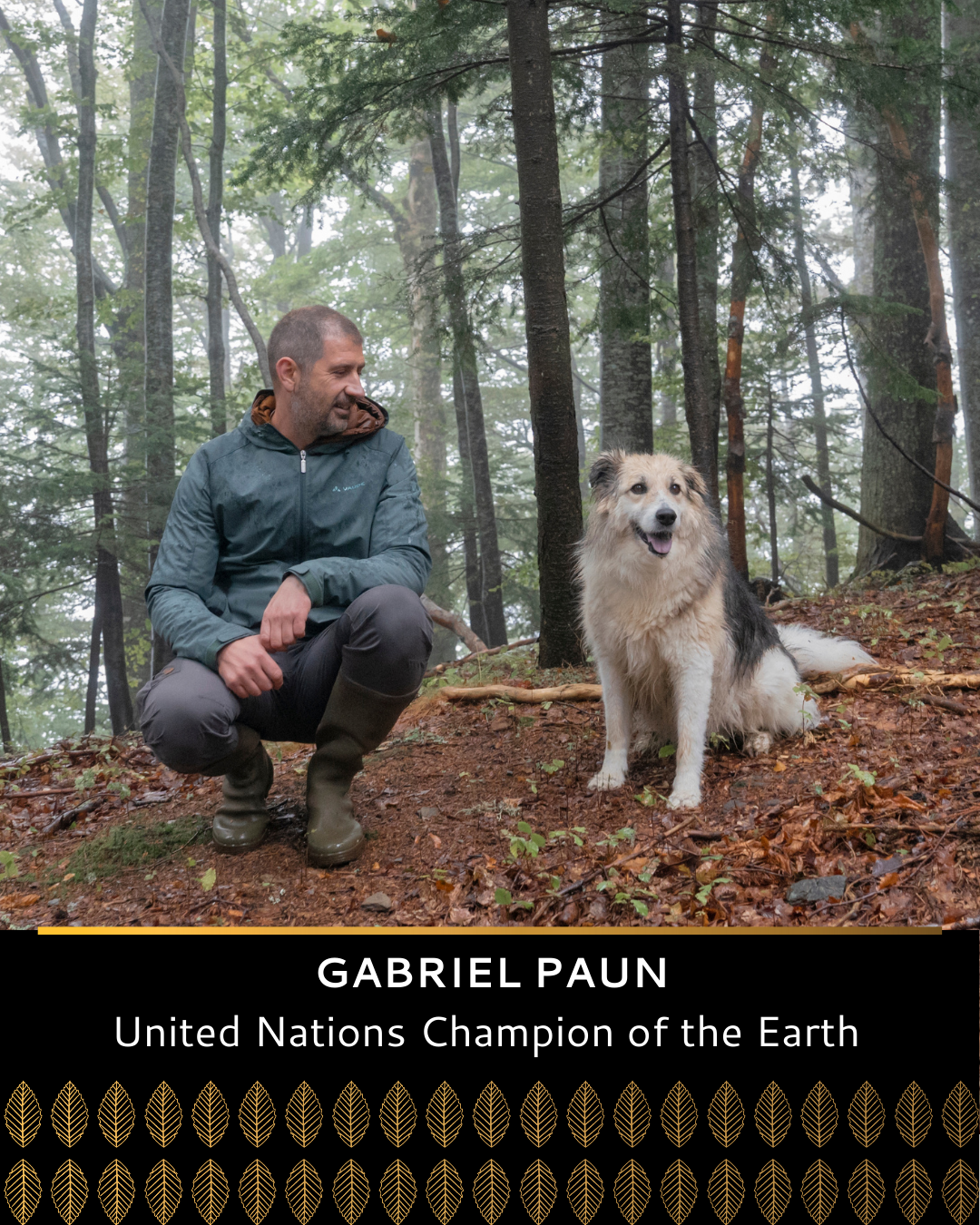
Gabriel Paun – Inspiration and Action
The 47-year-old Romanian environmental defender has been assaulted, stalked, threatened and driven off the road. After years of cataloguing illegal logging in Romania’s national forests, he says he has a bounty on his head.
“I’m not upset or angry or worried. Nothing to complain about,” Paun says with a wry smile. “I can’t explain why I have survived so many times. But I’m happy because I can do more.”
There’s an unsettling ease with which Paun describes decades of run-ins with what he calls the “forest mafia” – a collection of rogue loggers that observers say are wreaking havoc on some of the last remnants of Europe’s old-growth forests.
“I’m not fighting only for the trees, but for the entire forest ecosystem, including the thousands of species that live under and above ground,” Paun tells the United Nations Environment Programme (UNEP). “Primary and old-growth forests are of the utmost importance. I have all the reason to dedicate my life and career to them.”
For his efforts to defend the environment in the face of grave danger, Paun has been named a 2024 Champion of the Earth – the United Nations’ highest environmental honour – in the Inspiration and Action category. Paun is one of six laureates in the 2024 cohort.
“As ecosystems around the world are degraded and destroyed, environmental defenders stand as nature’s truest allies. Yet they continue to endure physical attacks, smear campaigns and other hardships,” says Inger Andersen, UNEP’s Executive Director . “Gabriel Paun’s brave, impactful actions make him an inspiration to envrionmental defenders across the globe who are seeking to protect forests and ecosystems from destruction.”
Treefall
Romania is home to two-thirds of Europe’s last remaining old-growth forests, according to the European Union . Those forests are primarily nestled along the Carpathian Mountains. They provide essential ecosystem services, climate regulation and flood control, to millions. They’re also home to some of Europe’s largest populations of big carnivores, including lynx, brown bears and wolves.
Yet forests in the country have been under siege for decades. In 2019, Romania’s Ministry of Environment, Water and Forests, said over half of all logging in Romania was unauthorized. The European Union says the practice is fuelling deforestation.
In 2009, Paun founded the non-government organization Agent Green to expose environmental crimes in Romania. Despite a limited budget and small team, Agent Green says it has helped save tens of thousands of hectares of primary and old-growth forests. In December 2023, it reported that it prevailed in years-long lawsuits against logging in the Domogled-Valea Cernei National Park, effectively protecting over 29,000 hectares of forests.
“The name ‘Agent’ speaks for itself: We stand for investigations,” Paun says. “But we also work with scientists to document particular forests and show the authorities – or the owners, if it’s a private one – that it’s a precious forest, and it’s worth preserving.”
Paun says his organization is dedicated to non-violence. But his opponents don’t always sing from the same hymn sheet.
Bodily harm
On a chilly winter day in 2014, Paun tracked a truck exiting Romania’s oldest national park, the Retezat, loaded with lumber. Paun covertly followed the truck until it arrived at a sawmill. Camera in hand, he approached the factory entrance to document the crime.
In response, one security guard pepper-sprayed him.
In another incident in the Retezat in 2015, Paun says he was attacked and suffered serious injuries to his ribs, head and hand. Footage of the incident has since garnered nearly 150,000 views.
A European Parliament briefing in 2023 expressed “particular concern” after investigations revealed that “cases of violence and murder against whistle-blowers and foresters are surging” in the country.
Globally, over 1,700 environmental defenders from 61 countries were murdered between 2012 and 2021, according to a UNEP report .
“Environmental defenders are in terrible isolation. Our opponents are more or less happy that we are very few, and that makes us very vulnerable,” Paun says.
In the courts
Agent Green says it has filed “hundreds” of lawsuits to prevent illegal logging. The group has brought some of its cases to European institutions in a process Paun terms “a never-ending story.”
Yet Paun remains optimistic that environmental justice will prevail. He’s also extending his work beyond Romania, advocating at international summits and meetings with development agencies.
His latest project is the establishment of a shared peace park in the Carpathians, one of Europe’s few truly wild areas at the Ukraine-Romania border.
“For wildlife and all the other species, there are no boundaries. The only boundary exists in our very own minds,” Paun says. “Our vision is also for people to live without borders. So it’s a very symbolic project. And I think it’s ecological diplomacy at its best.”
Ultimately, Paun says his inspiration comes from the beauty of nature.
“All the threats I’ve endured mean little or nothing to me,” he says. “I have to keep going because I cannot unlearn what I learned. And I learned that the planet is suffering and needs healing. If I stopped, then I would be morally dead. And to me, moral death is the most painful death of all.”
Protecting people and the planet
The Champions of the Earth award is the UN’s highest environmental honour and recognizes trailblazers from the public and private sectors, civil society and academia who are at the forefront of efforts to protect both people and the planet.
It has been presented annually since 2005, with122 laureates to date.
This year, nominations focused on finding champions who are restoring degraded land, increasing drought resilience and preventing desertification.
Honouring ‘extraordinary individuals’
UNEP Executive Director Inger Andersen noted that almost 40 per cent of the world’s land is already degraded. At the same time, desertification is on the rise and devastating droughts are becoming more regular.
“The good news is that solutions already exist today, and around the world, extraordinary individuals and organizations are demonstrating that it is possible to defend and heal our planet,” she said.
“The efforts of the 2024 Champions of the Earth stand tall as a reminder that the fight to protect our land, our rivers and our oceans is a fight we can win. With the right policies, scientific breakthroughs, system reforms, activism, as well as the vital leadership and wisdom of Indigenous Peoples, we can restore our ecosystems.”
Meet the Champions
Sonia Guajajara, Brazil’s Minister of Indigenous Peoples, was honoured in the Policy Leadership category.
Ms. Guajajara has been advocating for Indigenous rights for more than two decades. She became Brazil’s first Minister of Indigenous Peoples and the country’s first female Indigenous minister in 2023. Under her leadership, 10 territories have been recognized as Indigenous land to ward off deforestation, illegal logging, and drug traffickers.
Amy Bowers Cordalis, an Indigenous rights advocate, received the award in the Inspiration and Action category
Ms. Cordalis is using her legal expertise and passion for restoration to secure a better future for the Yurok tribe and the Klamath River in the United States. UNEP said her work to restore the river ecosystem and encourage the adoption of sustainable fishing practices demonstrate how bold environmental action can bring significant positive change, while upholding Indigenous Peoples’ rights and livelihoods.
Gabriel Paun, a Romanian environmental defender, was honoured in the Inspiration and Action category.
Mr. Paun is the founder of Agent Green, a non-governmental organization (NGO) which has been helping save thousands of hectares of precious biodiversity in the Carpathians since 2009 by exposing the destruction and illegal logging of Europe’s last old growth forest.
He has received death threats and been physically attacked for his work in documenting deforestation in an area that is vital for the ecosystem and supports unique biodiversity such as endangered lynx and wolves.
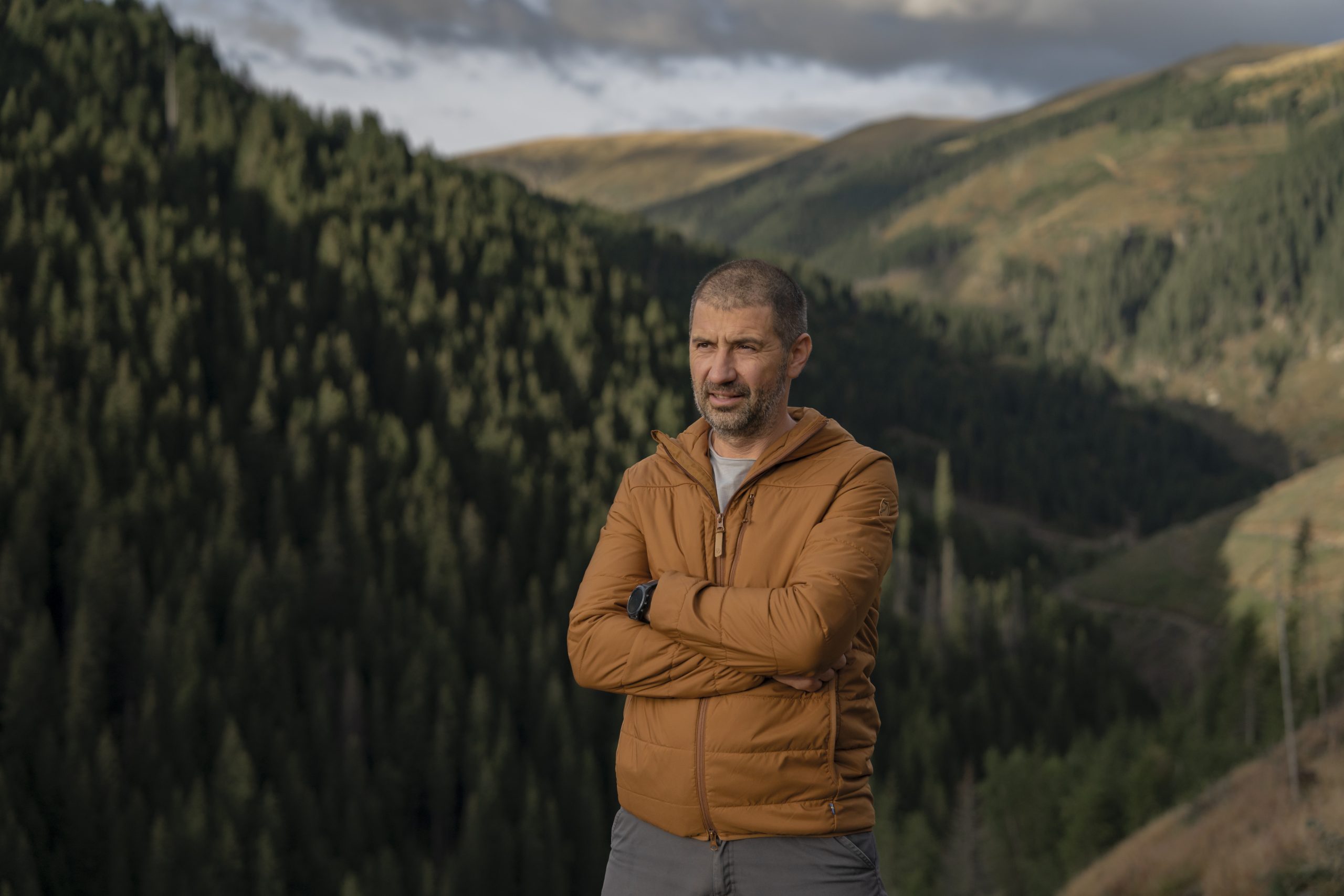
Photographer Credit: © Andrei Pungovschi / UNEP
Chinese scientist Lu Qi was honoured in the Science and Innovation category. He has worked in science and policy sectors for three decades, helping China reverse degradation and shrink its deserts
As Chief Scientist of the Chinese Academy of Forestry and founding President of the Institute of Great Green Wall, Mr. Lu has played a key role in implementing the world’s largest afforestation project, establishing expert research networks and partnerships, and boosting multilateral cooperation to stem desertification, land degradation and drought.
Madhav Gadgil, an Indian ecologist was named as the laureate in the Lifetime Achievement category. He has spent decades protecting people and the planet through research and community engagement.
“From landmark environmental impact assessments of state and national policies to grassroots environmental engagement, Gadgil’s work has greatly influenced public opinion and official policies on the protection of natural resources.
“He is renowned for his seminal work in the ecologically fragile Western Ghats region of India, which is a unique global biodiversity hotspot,” said UNEP.
The SEKEM initiative in Egypt was honoured in the Entrepreneurial Vision category for helping farmers transition to more sustainable agriculture.
Its promotion of biodynamic agriculture plus afforestation and reforestation work has been transforming large swathes of desert into thriving agricultural business, advancing sustainable development across the country.
Restoring the world’s ecosystems
Roughly 3.2 billion people worldwide are currently threatened by desertification, according to UNEP. Additionally, by 2050, more than three-quarters of the world’s population is expected to be affected by droughts.
In March 2019, the UN General Assembly adopted a resolution declaring 2021–2030 the UN Decade on Ecosystem Restoration.
Led by UNEP and the UN’s Food and Agriculture Organization (FAO) and supported by partners, it aims to prevent, halt, and reverse the loss and degradation of ecosystems worldwide to revive billions of hectares of terrestrial and aquatic ecosystems.
The announcement of the 2024 Champions of the Earth on 10 December coincides with Human Rights Day and the Resilience Day at the 16th Session of the Conference of the Parties (COP16) of the UN Convention to Combat Desertification (UNCCD) taking place in Riyadh, Saudi Arabia.

